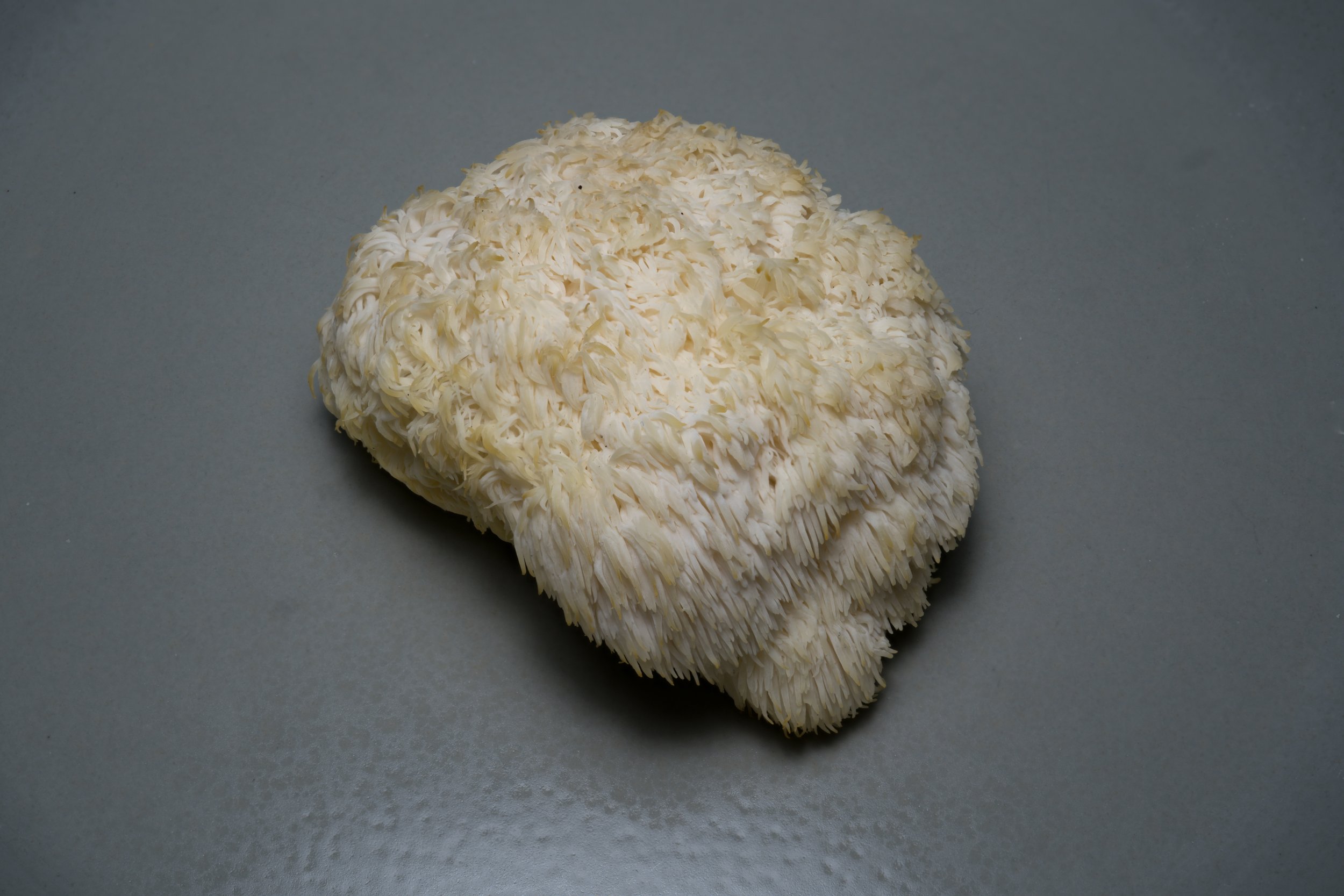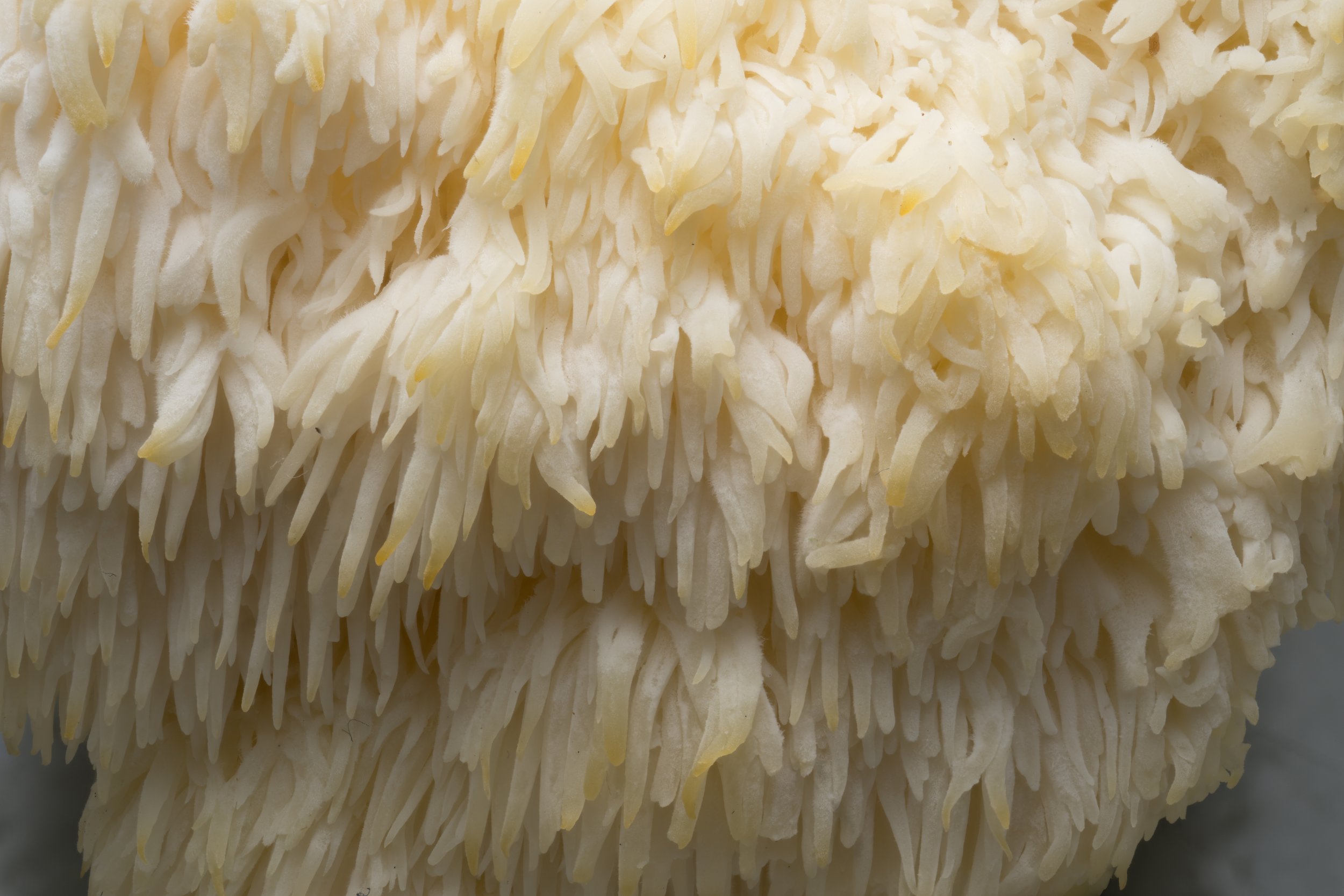Lion's Mane
Hericium erinaceus
See artwork and accessories in our shop celebrating the Lion’s Mane!


Etymology:
- Lion's Mane: It be lookin like a lion's mane!
Other Common Names:
- Malaysia: cendawan bunga kubis - Cauliflower mushroom
- Japan: Yamabushitake (山伏茸) - Take meaning mushroom and Yamabushi meaning "those who sleep on the mountains" - referring to the Japanese Yamabushi monks.
- China: hóu tóu gū (猴頭菇) - Monkey's Head
- Czech: korálovec ježatý - Porcupine Coral
- Germany: Igelstachelbart - Bearded Headgehog
- The Pom-Pom mushroom
- Bearded Tooth mushroom
Location: This species is more commonly found in North America and Europe but is also present in various East Asian countries.
Ecological Group: Acting as a parasite while the tree is alive, and subsequently aiding in its natural decomposition after the tree's demise.
Edible? Yes, this mushroom has a lovely meaty texture but can be a bit delicate when cooking. The taste is light and often described as similar to seafood, such as lobster or crab.
-
The Japanese term for this mushroom, Yamabushitake, originates from its resemblance to the suzugake robes worn by Yamabushi monks, who also used the mushroom to enhance brain activity during meditation.[11][12][13]
-
Lion's Mane contains numerous bio-active compounds, notably Hericenones and Erinacines, with the potential to yield multiple beneficial effects on the brain. These compounds not only promote the creation of nerve growth factors but also mimic their actions, further enhancing their positive impact [7][8]. Early studies in mice have demonstrated improved memory [9] and neuron longevity [10]. Moreover, several other studies conducted on humans have revealed other remarkable impacts of consuming Lion's Mane:
Anti-Depressant: Early studies suggest that Lion's Mane has the potential to alleviate depression by addressing various possible contributing factors. However, further research is required to fully understand its underlying mechanisms and effectiveness. [1]
Improved Cognitive Function: Multiple studies have demonstrated the potential for Lion's Mane's to enhance cognitive abilities in both healthy individuals and those with dementia. [2][3][6]
Alzheimer’s Treatment: Lion's Mane has the potential to improve cognitive abilities in Alzheimer's patients as well as assists in addressing potential contributing factors. [4][5]
-
Lion's Mane is a relatively easy mushroom to grow, making it a popular fungi to cultivate at home once you become more familiar with basic cultivation techniques. [14]
Lion’s Mane mycelium is very thin and wispy, making it sometimes difficult to tell when it is ready to fruit mushrooms. [14]
-
(Video) Lion's Mane Mushrooms Actually DO SOMETHING! - SciShow - Great video walking you through the benefits of Lion’s mane and why they do what they do. Highly recommend!
First Nature - Bearded Tooth - British couple who are very well versed in mushrooms.
The Mushroom Expert - Very detailed general information around identification.
-
Disclaimer: Please refrain from picking and consuming mushrooms without proper guidance. If you have an interest in learning how to forage, I strongly encourage you to join your local mycological society. You can find a list of clubs across America, organized by state, on the North American Mycological Society's website.


